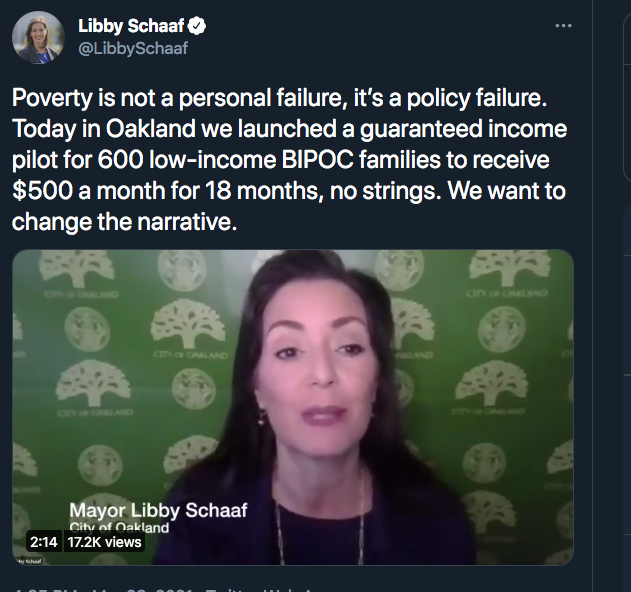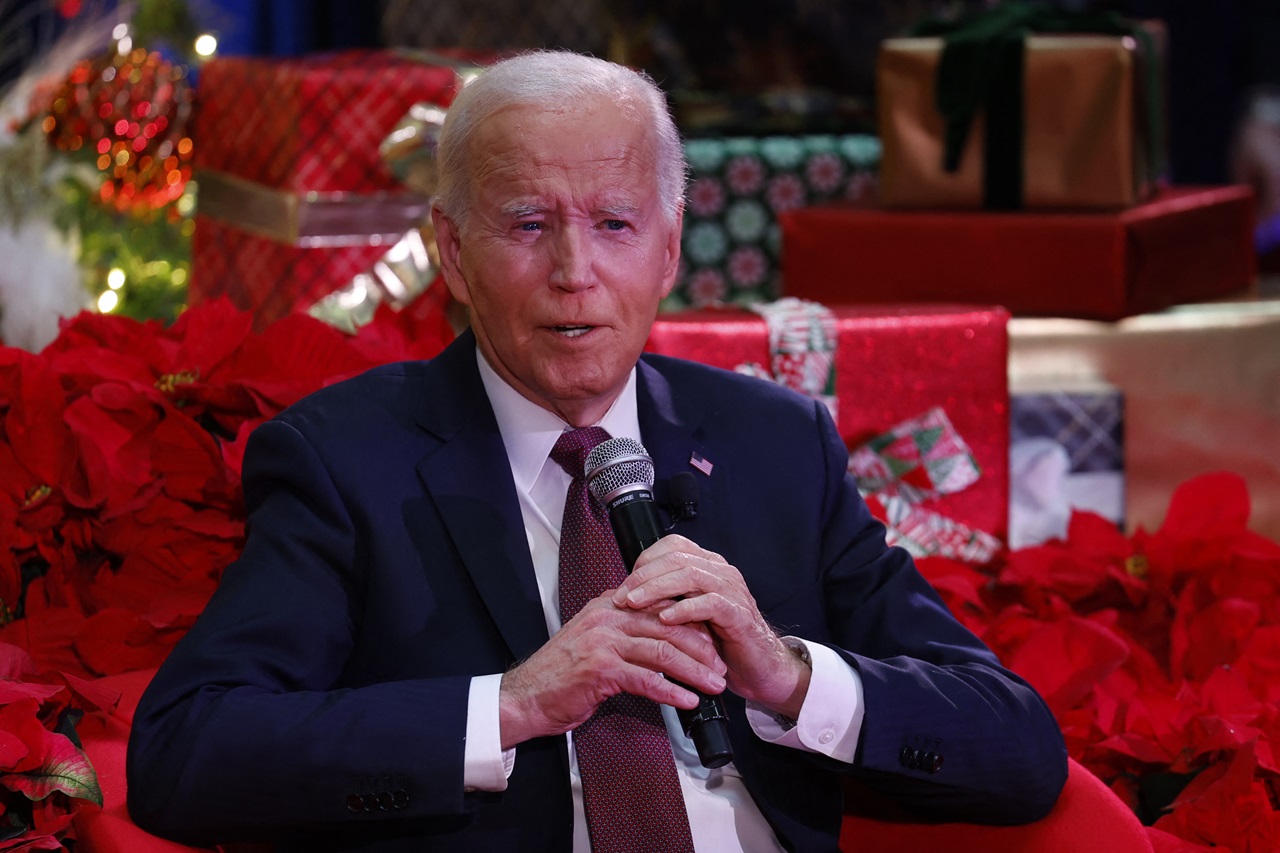
Oakland announces pilot for universal basic income, could be a model for other U.S. cities
The new, $6.7 million project will distribute $500 each month to eligible families for a total of 18 months.
Oakland Mayor Libby Schaaf and other leaders made a significant announcement on Tuesday, March 23. Calling it a historic moment, Schaff revealed a new framework for the city that will be one of the nation’s largest guaranteed income pilots.
Poverty is not a personal failure, it’s a policy failure. Today in Oakland we launched a guaranteed income pilot for 600 low-income BIPOC families to receive $500 a month for 18 months, no strings. We want to change the narrative. pic.twitter.com/78fDjUj4G1
— Libby Schaaf (@LibbySchaaf) March 23, 2021
The program will distribute monthly payments to hundreds of Oakland families. To be eligible for the payments, families must identify as BIPOC (Black, Indigenous, people of color), and fall under the demographic category of low-income.
Schaaf said that 600 families will be able to receive $500 each month for a total of 18 months with “no strings attached.”
I am so excited to help lead the community engagement effort for the city’s guaranteed income pilot, Oakland Resilient Families. This amazing program will provide 600 low-income families, half of whom will be from East Oakland, with an unconditional $500 per month for 18 months! pic.twitter.com/ZB0AuN214O
— Loren Taylor (@lorenmtaylor) March 23, 2021
The roughly $6.7 million funding this project comes from the philanthropic organization, Blue Meridian Partners, so no taxpayer money is necessary.
Families can apply for these benefits later this Spring and will be randomly selected from the applicant pool, given that they meet the basic income requirements.
The program, Oakland Resilient Families, does not operate on a first-come-first-serve basis, and is open to undocumented residents and families experiencing homelessness.
The program is a partnership with the national Mayors for a Guaranteed Income and the Family Independence Initiative.
CEO of the Family Independence Initiative, Jesús Gerena, explained that the first area targeted will be East Oakland, and the next will be broader Oakland.
Schaff estimated that eligible families should be receiving their checks by Spring and summer. She also said that they have the opportunity to participate in interviews and surveys, but it is not mandatory.
The racial income gap in Oakland is wide, and though the program intends to narrow the gap, Schaaf is well aware that this money will hardly make “a real dent” in poverty.
The median income in the city for African-Americans is less than $50,000 a year and the median income for white residents is more than $10,000 a year.
The idea of guaranteed income isn’t new, but last September, a group of mayors launched small, temporary programs across the country in a campaign to convince Congress to adopt a national program.
“In the U.S., our systems by design hold back Black and Brown families,” said Gerena during the virtual press conference.
A smaller-scale guaranteed income pilot program in Stockton, just an hour’s drive away, has produced some amazing results. A study on the program’s first year, from Feb. 2019 to Feb. 2020, found that its 125 recipients landed full-time jobs at more than twice the rate of non-recipients, experienced reduced anxiety, depression and fatigue, and reported improvements in emotional health and overall well-being.
“I’m hella proud of Oakland today,” said former Stockton mayor Michael Tubbs, who leads the Mayors for a Guaranteed Income Initiative.
RELATED CONTENT
“The issue isn’t that people don’t want to work — the issue is that the economy doesn’t work for people,” Tubbs said.
He also noted that many critics of the program raised concerns that recipients would quit their jobs and spend the money on drugs and alcohol, but the study found that recipients were spending the cash on basic needs, like clothes, food, and utilities, with less than 1% going towards alcohol or tobacco.
This type of program has also been tested in countries such as Kenya and India with positive results, including improvements in nutrition, and in Finland, where preliminary results showed improvements in health and well-being.
In the U.S., some pilot projects have also shown promise, such as the program by Magnolia Mother’s Trust in Mississippi, which gave $1,000 per month to Black moms and found that it made a difference.
There’s also a recent program in San Francisco that will give $1,000 per month to Black and Pacific Islander pregnant people, aiming to improve maternal and infant mortality rates.
The Oakland program’s website gives credit directly to pushes for a guaranteed income by Martin Luther King Jr. and the Black Panther Party.
"It is important to realize that unemployment benefits are, in fact, a RIGHT...Unemployment benefits...represent...a minimum demand; a short range goal along the path towards full employment or a guaranteed adequate income for all." Black Panther Party, 1975. From @DavidpStein pic.twitter.com/yrfeF1jzSH
— Publius's Revenge (@PubliusRevenge) February 4, 2021
“The poverty we all witness today is not a personal failure, it is a system failure,” Schaaf said in a news release. “Guaranteed income is one of the most promising tools for systemic change, racial equity, and economic mobility we’ve seen in decades.”











LEAVE A COMMENT:
Join the discussion! Leave a comment.